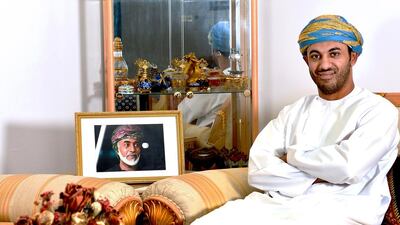Qais Al Khonji, 35, is an Omani entrepreneur with a background in banking and family business. He has set up five businesses, learning from the mistakes of his first enterprise to successfully launch the next four, which include Genesis Projects and Investment, a core analysis lab for the oil and gas sector and Genesis International, a trading company. Here he gives his perspective on what it takes to succeed when starting a business in the region.
Which attributes does a successful entrepreneur require?
I have a bachelor’s degree from a university in Leicester in the UK, where I studied business information systems. I’m an ex-banker and belong to a family business, but decided to start my own business so I can learn and grow independently. I’m a risk-taker and I love taking challenges.
What is the entrepreneurial scene in Oman like? Does it differ from the rest of the Gulf and what are its strengths and weaknesses?
I call the Omani market, the market of the two Ss – small and slow. When I say small, I mean it’s difficult to stand on your feet unless you have a unique idea. What I mean by slow is, it takes a lot of time to process an order, which is a cost factor. To sustain sometimes the market has to be quick. This is considered to be a hurdle for start-ups to survive. Therefore I think our market is a bit different than neighbouring markets.
What has been your most successful business?
Genesis Projects and Investments, which provides a service to test oil core samples, the technical term is EOR – enhanced oil recovery. The purpose of this is to enhance the oil production of the producers in the field. I got a bank facility to establish it. The quality of the service we offer and the people behind it are the success factor. We are a group of shareholders who share knowledge and contact and experiences. I’ve always advised engineers to partner with a finance person and vice versa. In my humble opinion this is the best combination for an entrepreneurial project.
What advice would you give to other entrepreneurs in the region?
Firstly, start in the service sector rather then products because you can always improve the quality of your service. Secondly, as mentioned earlier, the best combination for an entrepreneurial project is to have an engineer and a finance person in partnership. Thirdly, be patient and believe in your idea. Finally, practise to learn rather than studying the subject. Entrepreneurship is all about practice.
What were your biggest mistakes and greatest decisions?
I have made a few mistakes in the past, but because of them I’m successful today. My first business wasn’t studied properly and wasn’t good enough, also my marketing strategy and reaching the targeted clients was a big hurdle that we couldn’t handle properly. The best decision I have made was to get a set of partners together with the know-how and capability to achieve our goals and to start the ventures that the market needs.
There seems to be a funding gap in the region for start-ups. What can be done to help fund entrepreneurs?
In Oman we have two main funds that serve the needs of entrepreneurs, the Sharakah and Al Rafd funds. They are both initiatives from the government as well as the private sector. In my case I haven’t faced any hurdles to fund my projects, the key is to have a proper finance person to handle your matters. Some criticism has been made that too many start-ups in the technology space look for local or regional angles when each business focused on the internet should think global.
How much do you agree or disagree with this?
If you have a tech idea you should try to develop it in the USA for many reasons. As we see how those ideas can go globally, for example WhatsApp or all the internet giants. So I totally agree that any tech idea which is unique should think globally rather then regionally. All of the tech success stories come from the West, so the focus should be for the same if that business wants to become a success.
What is next for you and your businesses?
My aim at the moment is to build more solid businesses in Oman and expand in the region. This will definitely lead me to the bigger dream, which is to invest in an opportunity in Europe within the next six years. That is my goal at the moment and I’m working hard towards it. It’s a way to build a path towards a global goal.
What are the hot sectors right now for entrepreneurs to focus on?
Services of any sort, oil and gas, real estate and energy. Any service is definitely better then investing in products, unless it’s a strong global brand.
business@thenational.ae
Follow us on Twitter @Ind_Insights

